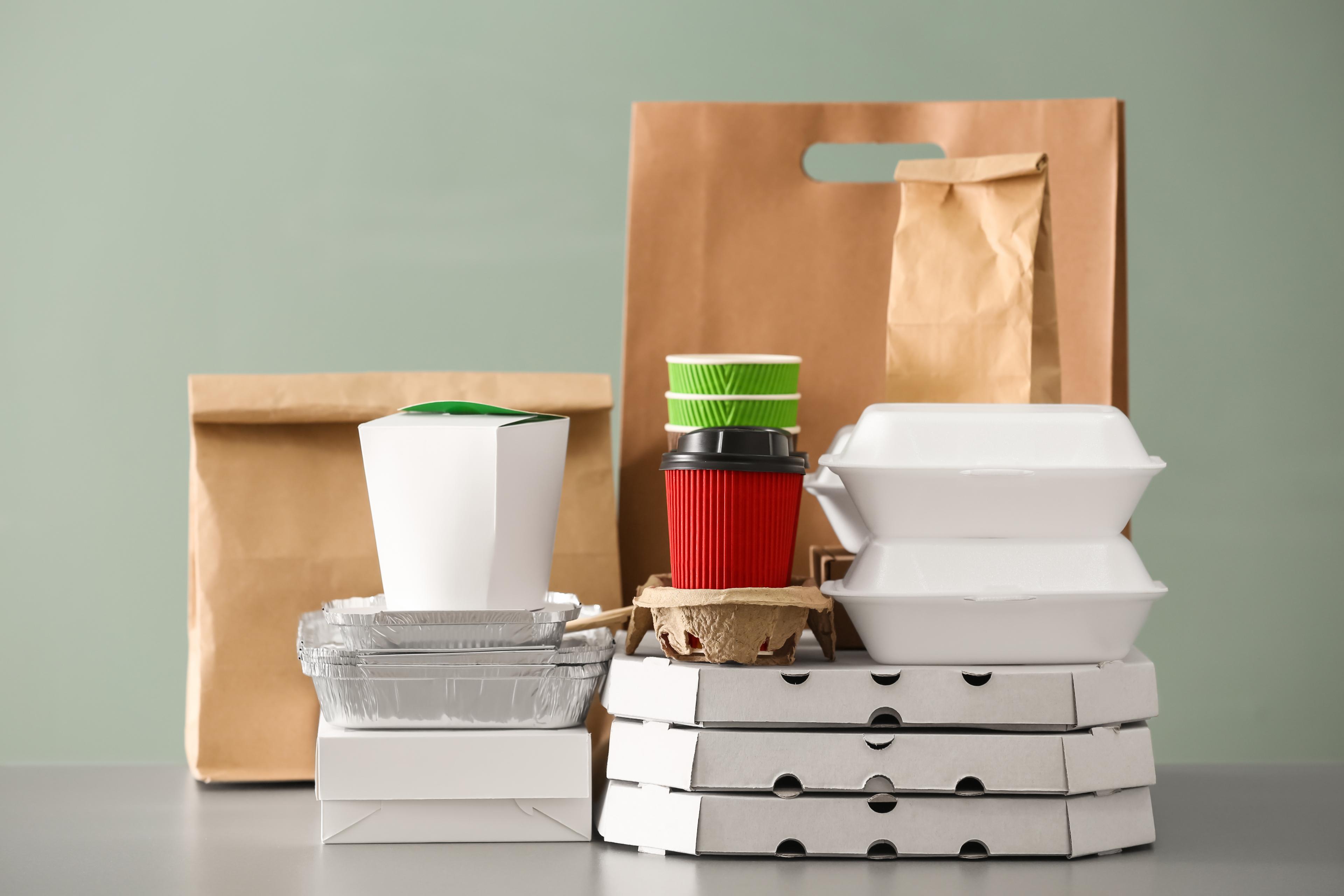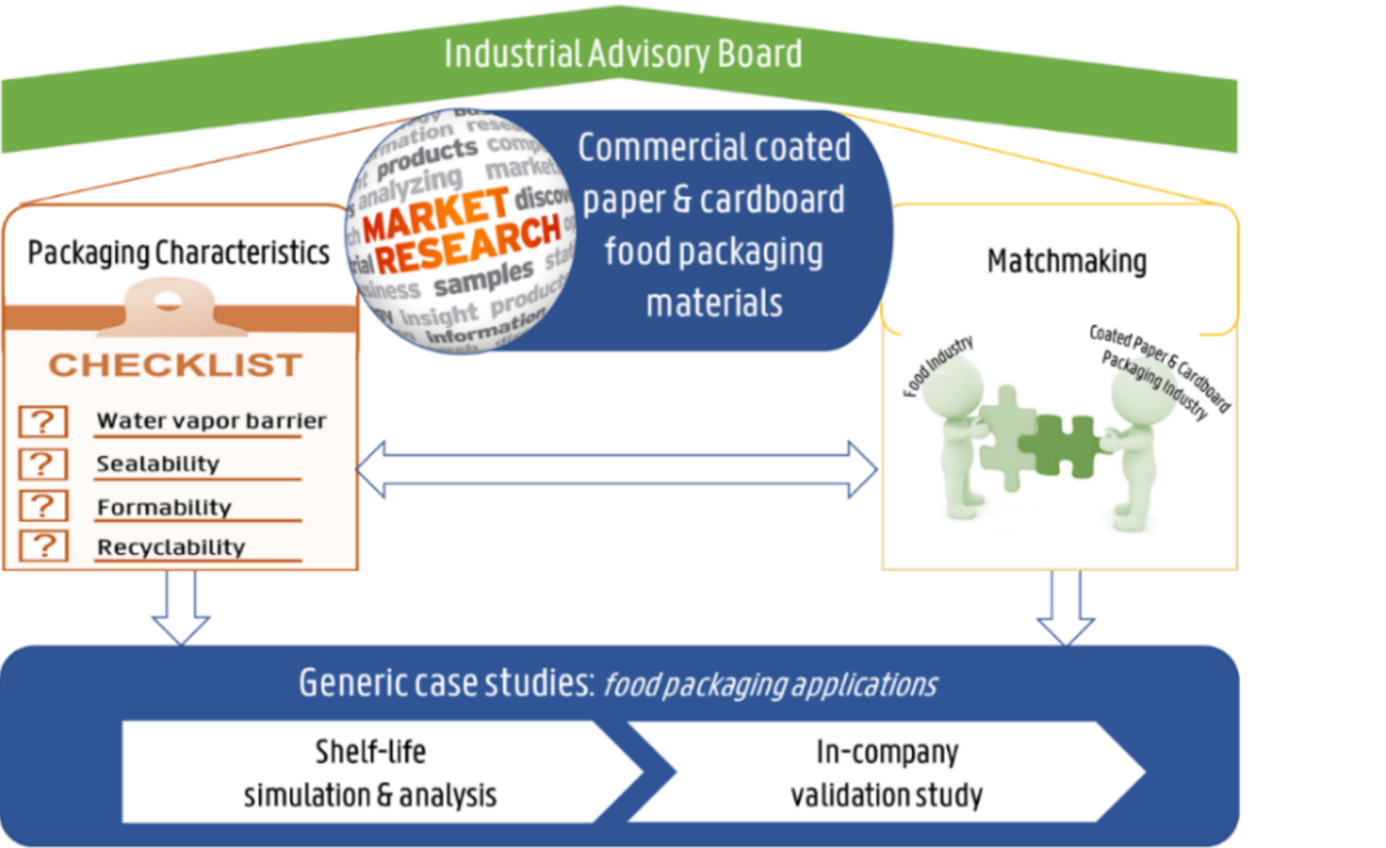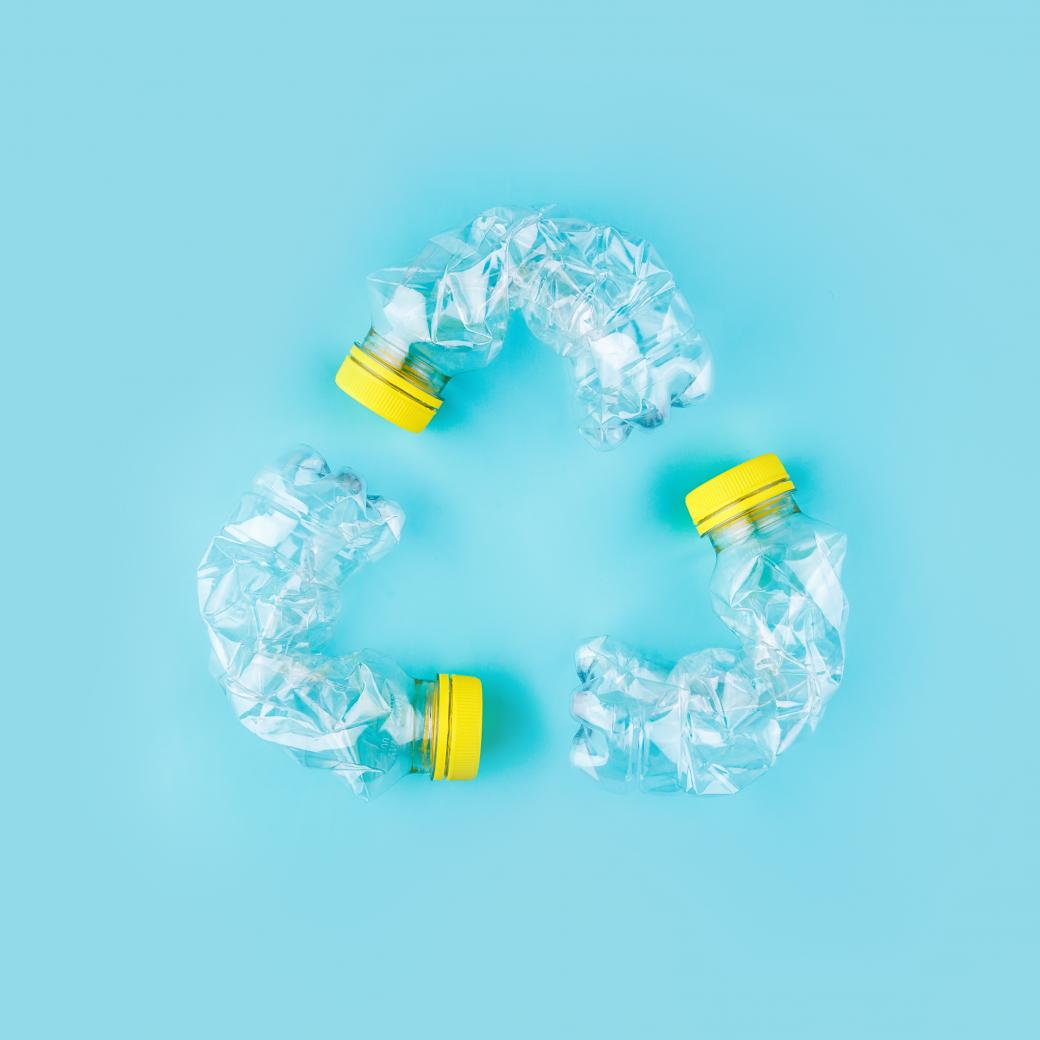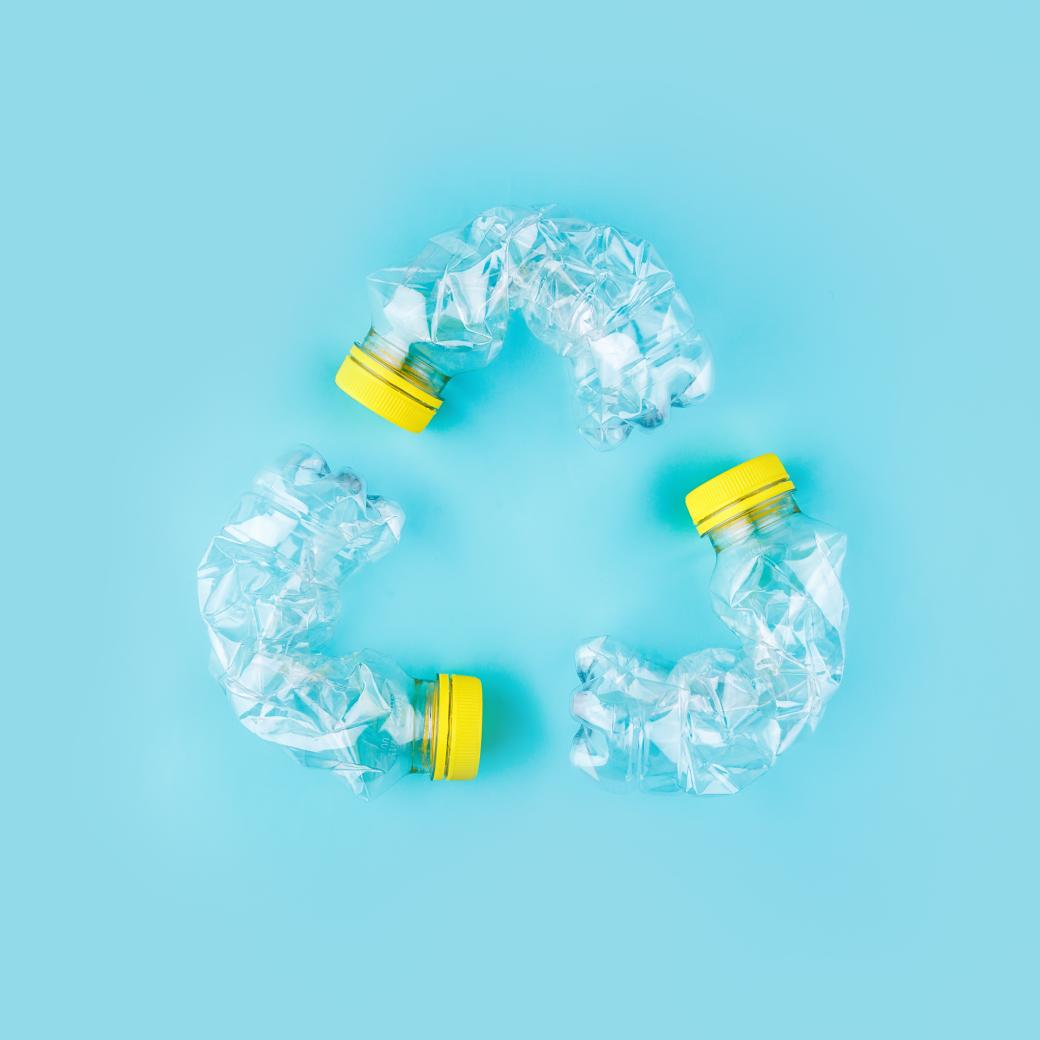REPAC²
With support of:


Functional & recyclable coated paper packaging for food products
Why this project?
The ‘Food packaging of the future’ roadmap states that the recyclability of packaging is an important characteristic for achieving the transition to circular packaging. As a result, the use of paper and cardboard in food packaging is gaining a lot of interest. However, to be applicable as food packaging, paper and board materials are finished with one or more coatings that provide good sealing and barrier properties to gases and moisture. Various coated paper and board materials for food packaging applications are currently on the market. However, it is not always clear whether these materials have the desired properties and whether they are suitable for the purpose. Moreover, the recyclability of these coated materials is unknown. At present, there is no universal method available to determine the recyclability of coated paper and cardboard packaging materials. However, it is generally accepted that a coating should not exceed 5% of the packaging to ensure recyclability.
Methodology and results
As part of the European Green Deal, it is paramount that food companies think about their packaging concepts and materials. Packaging sustainability is currently high on the agenda and companies have every interest in switching to sustainable or more sustainable packaging - if possible.
This TETRA-CORNET project, supported by Vlaio, allowed Flemish, German and Polish companies to develop cases around the use of coated paper packaging for various food products. Several international matchmaking events were organised. Companies looking for an alternative, sustainable or more sustainable paper food packaging were put in touch with manufacturers of functional and recyclable coated paper packaging. The matchmaking events were a great opportunity to connect with several international partners in one day. In addition, the companies could learn about the expertise of the project partners and the wide network of the REPAC2 consortium to further expand their business.
During the various work packages of the REPAC2 project, participating companies gained a better understanding of the availability, applicability and recyclability of coated paper for primary food packaging. The main project results were bundled in a general practical guide for industry, published in January 2024.
Access to the project results
The REPAC2 project was completed at the end of 2023. The following documents have been made available free of charge thanks to the project partners:
- A practical guide for using recyclable coated paper food packaging
- A detailed report on the cases
- An online inventory of coated paper packaging for food applications
For more info on the project results and cases, please contact the project manager.
Target group
REPAC²’s target market includes the food industry, producers and processors of coated paper and cardboard packaging and recycling companies.
Project partners
Hasselt University’s MPR&S research group managed and coordinated the project. The partners were Sirris, Pack4Food and Flanders’ FOOD along with foreign partners Fraunhofer, Natureef and CBIMO.







